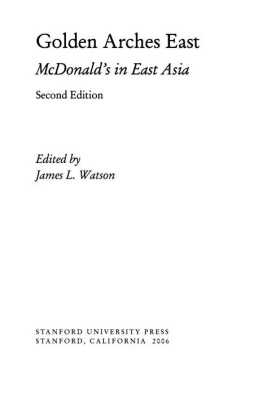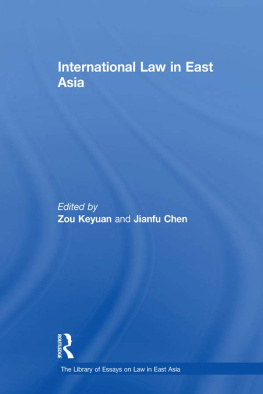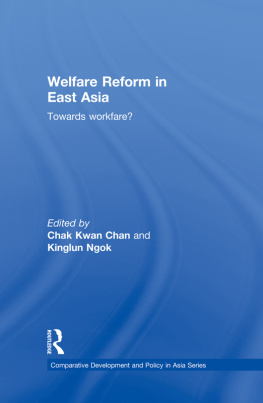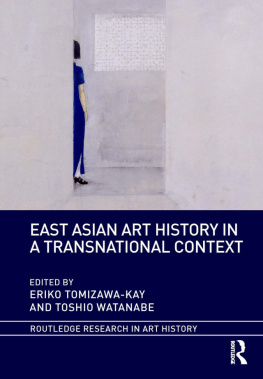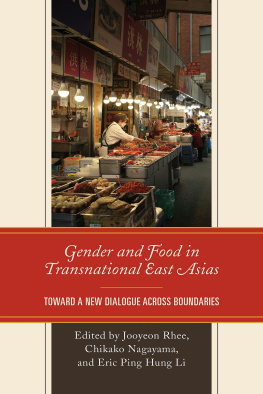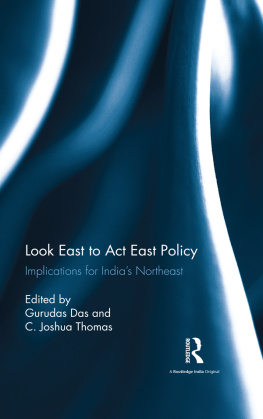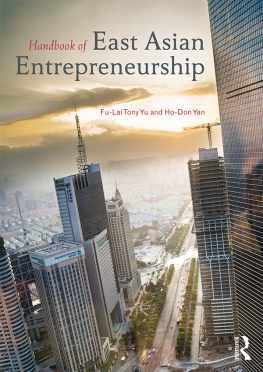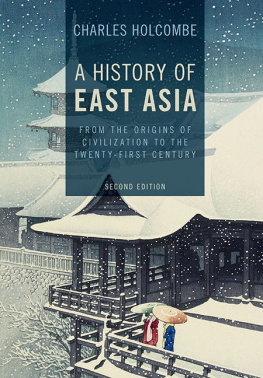Golden Arches East
Golden Arches East
McDonald's in East Asia
Second Edition
Edited by
James L. Watson





Preface to the First Edition
It seems appropriate to begin with a biography of this project. Why fast food? How did five anthropologists find themselves doing ethnographic studies of McDonald's in East Asia? This is not the sort of study most people think of as the proper subject of anthropology.
I must confess that I was drawn into this project by circumstances not of my own devising. In 1989 Ruble Watson and I made our annual visit to a village in Hong Kong's New Territories, just south of the old Anglo-Chinese border. We have been doing fieldwork in the New Territories since the late 1960s, concentrating on topics that excite anthropologists (if not always the general reader): lineage organization, inheritance patterns, ancestor worship, geomancy, popular religion. Each year we looked forward to treating our host family, including two godsons, to dim sam (tea snacks) in Yuen Long, a market town that has evolved into a booming city. Soon after our arrival in early January 1989, our friends proposed: "Let's go to the new place. That's where the kids want to eat."
Later, as we emerged from our taxi-van, I looked up and there, looming in front of me, was a gigantic, three-story, sparkling new McDonald's restaurant. My first reaction can best be described as sensory disorientation: Where was I? I remember muttering to Ruble, "I didn't fly all the way from Boston to eat at McDonald's!" But of course I did, and have continued to do so on every subsequent visit to the New Territories. In the lives of my godsons and their age mates, McDonald's is a central institution. They are transfixed by the place and conspire in ever more creative ways to eat there.
Finally, after numerous visits to the Yuen Long McDonald's, it dawned on me that something had to be done about this phenomenon: it was clearly too important to ignore. I talked four colleagues into joining me in comparative studies of five East Asian settings. Each of us report similar flashes of astonishment when we discovered how deeply fast food chains had affected the lives of people we thought we knew well.
the figures are probably equally high in Hong Kong and Tokyo, while Beijing is catching up fast.
Not surprisingly, many people have strong views about McDonald's and assume that all right-thinking individuals share similar attitudes. To some environmentalists and political activists, for instance, McDonald's is an unambiguous symbol of evil. American intellectuals tend to denigrate McDonald's as an expression and instrument of cultural homogenization. Several academics of my acquaintance deny that they have ever crossed the threshold of a McDonald's restaurant; those who do admit to having entered the forbidden territory claim that they were coerced by their children and are always careful to add that Other Americans, notably working-class people who survive at or near the minimum wage, treat McDonald's as a godsend-a home away from home where an entire family can eat for under ten dollars. In some countries McDonald's stands for the United States and is treated as a symbol of Yankee imperialism: "About 40 masked men ransacked a McDonald's restaurant in Mexico City today to protest [California proposition 187]. `Yankee Go Home' [was] among the messages scrawled on the restaurant's window" (New York Times, Nov. 9, 1994).
In this book we take the stance that McDonald's is a subject worthy of research in its own right, which means that we do not begin with the assumption that everything about the corporation is necessarily bad. In doing so we risk offending the guardians of anthropological correctness. When we presented preliminary reports of our findings at the 1994 Annual Meeting of the American Anthropological Association, a senior scholar queried our motives ("Aren't you just legitimizing corporate hype?"), and another asked pointedly about the source of our research funds. Let me therefore set the record straight: Not one dime, yen, yuan, or won of research support derived from McDonald's Corporation or its East Asian franchise holders. We did not solicit funds from the corporation, nor would we have accepted such money had it been proffered. None of us has served as a paid consultant to McDonald's or any other fast food company. Our funding came from the usual (poverty-stricken) academic sources that support anthropological fieldwork in East Asia. Details can be found in the endnotes to each article.
To dismiss enterprises like McDonald's as somehow unworthy of serious inquiry is not only elitist, it is also suicidal for our discipline. Anthropologists have long prided themselves on tackling the big issues of cultural transformation throughout the world. My graduate students will perhaps forgive me for repeating a mantra they have often heard: "In fieldwork you live where people live, you do what people do, and you go where people go." Increasingly, all over the world, people are going to McDonald's; they are also going to shopping malls, supermarkets, and video stores. If anthropologists do not start going with them, we will soon lose our raison d'etre.
In my view, recent theoretical fads have led anthropologists to become increasingly detached from the interests and preoccupations of ordinary people. This book is part of a broader movement to redefine anthropology as the study of everyday life; we focus here on the most basic of human preoccupations-food. But, as we hope to convince our readers, food is only part of the picture. The study of McDonald's, Coca-Cola, Nestle's, Kellogg's, Kentucky Fried Chicken, and Heinz (to name only a few of the most obvious examples) leads the anthropologist into terra incognita, a world of research dominated by business schools, securities firms, and international consultancies. Is it possible for anthropologists to deal with corporate culture in a manner that is consistent with scholarly agendas and yet relevant to the interests of a general readership? Both goals can be accomplished by concentrating on the mundane concerns of ordinary people who are themselves the consumers of Big Macs, Cokes, and cornflakes. Focusing on the mundane is a strategy that allows anthropologists to relate their micro-level investigations-which are grounded in specific communities or groups of people-to the concerns of economists, sociologists, and political scientists who deal with cultural issues at the macro or global level. By its very nature, research on global issues has a seductive quality that encourages analysts to skip across the surface of cultural phenomena, not stopping to dig deeply into the lives of those who are most directly affected by corporations such as McDonald's. This book represents a conscious effort to situate the global in the local. Simply stated, our aim is to determine how McDonald's worldwide system has been adapted to suit local circumstances in five distinct societies.
Previous studies of fast food companies have focused on production, emphasizing either management or labor. The resulting publications read much like debates between conservatives and liberals: one side celebrates McDonald's as a creator of jobs and opportunity, the other condemns the company for exploiting workers and wasting resources. The authors of this book made a point of interviewing managers as well as workers whenever possible; we also read widely in the business literature devoted to fast foods. But we are primarily concerned with another dimension of the fast food system, namely consumption. What do consumers have to say about McDonald's? How is fast food perceived by those who pay to eat it? How do the preferences, biases, and cultural predispositions of customers affect the system of production? This approach may seem rather obvious to readers; it certainly was to us when we first discussed the project. Nevertheless, the consumer's perspective is largely ignored by most scholars who have written about the fast food industry. Literary critics, popular culture specialists, and media analysts tend to concentrate on their own reactions to fast food chains; they prefer to "interrogate" themselves rather than talk to people who actually eat at McDonald's. Other scholars, namely those who focus on business, have explored the managerial and entrepreneurial dimension of McDonald's, paying almost exclusive attention to the concerns of high-level executives. Ordinary customers remain in the background, if indeed they are mentioned at all.

